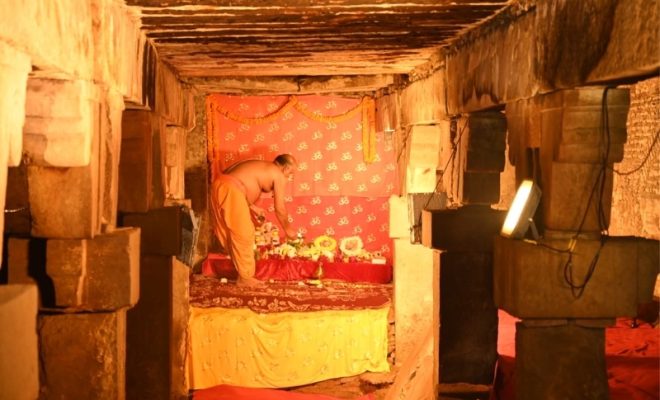Gyanvapi Complex Reopens For Hindu Prayers After 31 Years

After 31 years, the religious site within the Gyanvapi complex, known as Vyas Bhavan (Vyas Ka Tehkana), has been reopened for Hindu prayers.
This decision follows a court order from District Judge Ajay Krishna Vishvesha, who directed the Varanasi district administration to arrange for daily puja activities.
The site was initially closed off by an order from the former Uttar Pradesh Chief Minister Mulayam Singh Yadav, over three decades ago.
Seeta Sahu, representing the Hindu petitioners, expressed joy at being able to pray at the site after many years. The reopening was managed by the state government and district administration.
The quickly adjusted security measures to enable daily prayers, as stated by Advocate Vishnu Shankar Jain, a representative for the Hindu side.
The basement area within the Gyanvapi complex was made accessible for prayers on Wednesday, following the judge’s instructions to the Varanasi administration to prepare for the puja within a week.
Nagendra Pandey, President of the Kashi Vishwanath temple trust, confirmed that prayers were conducted in the basement. District Magistrate S Rajlingam also confirmed compliance with the court’s directive.
The opening of the cellar was marked by a special ‘aarti’ of Goddess Lakshmi and Lord Ganesh, as noted by some local residents.
The district administration played a significant role in this event, removing barricades near the Nandi statue facing the mosque’s ‘wazukhana’ on Wednesday night.
This decision was influenced by a recent report from the Archaeological Survey of India (ASI), which indicated that the mosque was built over the ruins of a Hindu temple during Aurangzeb’s reign.
The court’s order responded to a plea by Shailendra Kumar Pathak, who argued that his grandfather, a priest, had conducted prayers at the site until it was closed in 1993 following the demolition of the Babri Mosque.
Also Read: ASI Survey Discovers Broken Idols Of Hindu Gods At Gyanvapi Site
The Muslim representatives argued against this, claiming there were no idols in the cellar, and therefore, no prayers could have been offered there.
However, a recent survey by ASI has found 5000-year-old Sanskrit carvings, broken idols of Hindu deities, and several pieces of evidence of the Gyanvapi temple.
However, the court’s final verdict granted the right to worship to Hindus, a decision that the Muslim side is considering challenging in the High Court.



